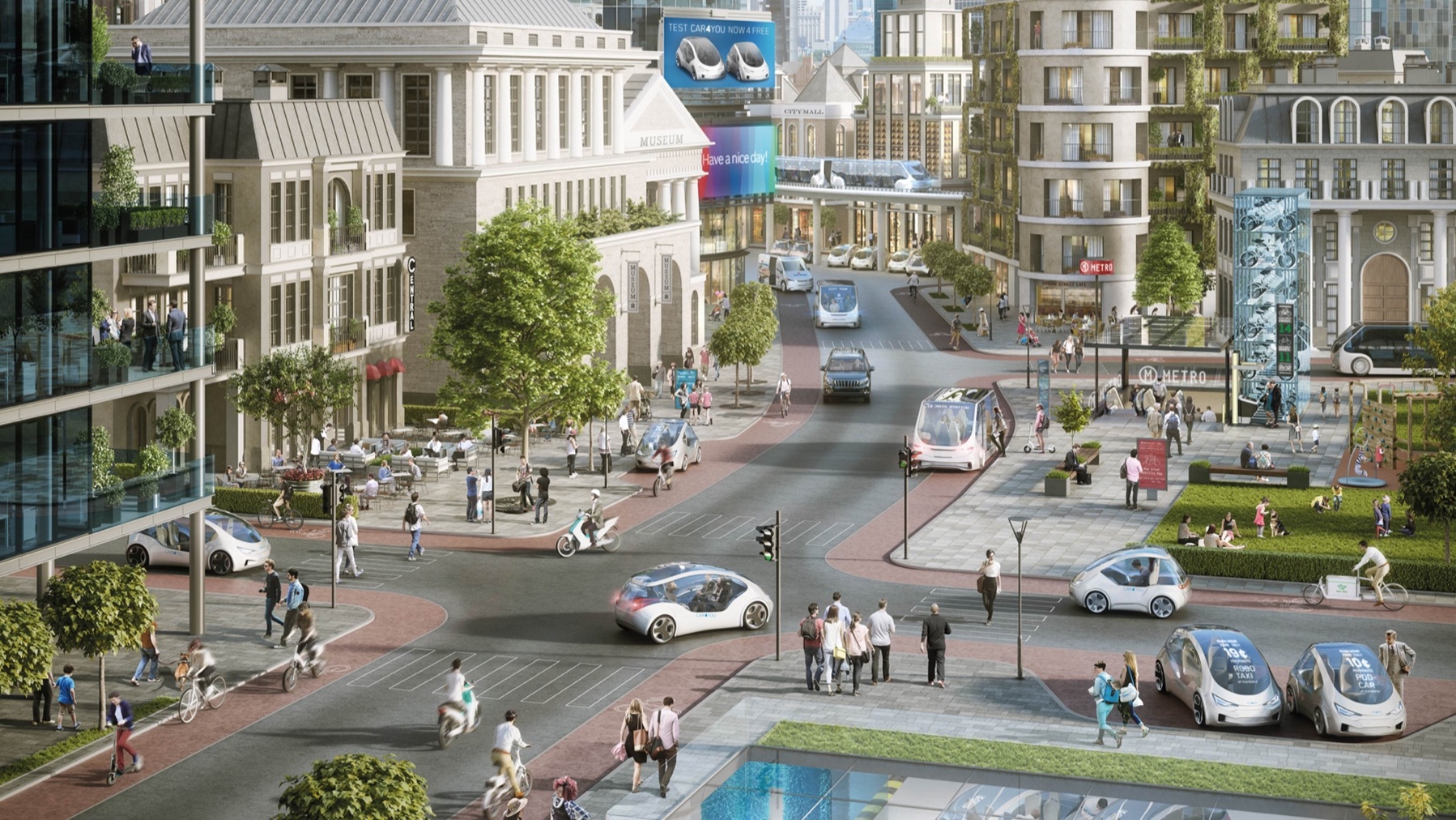Bosch’s vision for smarter cities
 |
| Bosch will roll out smart solutions of every scale and level to facilitate Vietnam in building out smart cities |
Bosch technologies bring connectivity not only to apartments and houses but also to entire cities. Smart cities improve city-dwellers' quality of life, as well as the economic efficiency of cities themselves. For this reason, Bosch wants to make cities more intelligent. The focus of these efforts will be on mobility, infrastructure, energy, and security.
Whether it is a case of connecting various modes of transportation – such as trains, buses, and car sharing – or managing traffic signals and lighting in cities, the aim is to offer city-dwellers better quality of life and thus more convenience and security, while also conserving resources.
As the smart city trend is picking up momentum in Vietnam, Bosch has announced an initial investment of $450,000 as part of its global smart city development plan to set up a new laboratory at the Bosch Software and Engineering R&D centre in Ho Chi Minh City.
The company employs 1,700 associates at two R&D facilities in Ho Chi Minh City, namely the Bosch Automotive R&D centre and the Software and Engineering R&D centre. The number is projected to grow by more than 15 per cent year-on-year, reaching 2,600 associates by 2020.
“For several years now, we have been steadily expanding our software and engineering expertise and capacity in the area of connectivity in order to offer more user-centric solutions for Vietnam,” said Mallikarjuna Guru, managing director of Bosch Vietnam. “Moving forward, we strive to make Ho Chi Minh City one of the key IoT solutions hubs for Bosch in Southeast Asia through our Bosch Software and Engineering R&D centre.”
According to Guru, around 30 associates are currently working at the new facility to develop and test various solutions such as Energy Monitoring Systems, Intelligent Traffic Management, Intelligent Parking Management, and various Connected Industry solutions.
Take, for example, the Intelligent Parking Management solution which helps smart cities and connected vehicles find free parking space. Soon all it will take is the touch of a button for cars to make their own way into the garage. Once inside, vehicles will enter and leave parking spaces automatically. All drivers will have to do is tap on the relevant app.
In Vietnam, Bosch has successfully implemented a new urban mobility solution called Integrated eScooter System, the integrated system solution with in-hub motor, where smartphone, eScooter display, battery, and charger are perfectly aligned. This Integrated eScooter System can connect to the Cloud Server for monitoring, tracking, and controlling. Meanwhile, its human-machine interface can provide users with useful information about the status of the system and the vehicle, such as temperature, speed, and battery capacity.
BIMA (Bosch Intelligent Microgrid Asian) provides hardware and software for a customised microgrid solution, which integrates multiple energy sources (e.g. solar, battery, diesel generator, and grid) to provide cost-effective and reliable power. The unique selling points are blackout prediction based on machine learning algorithms for efficient diesel generator operation, dynamic identification of load flexibility and cloud-based energy management.
For connected buildings, the Bosch Security Escort is a wireless help-call system to locate and position people or property throughout the system’s range.
The initatives underscore Bosch’s long-term commitment to the Vietnamese market as well as its endeavour to help the country build the smart cities of the future. Bosch stated that the firm will commercialise more smart products and roll them out to meet the rising smart city trend in Vietnam.
What the stars mean:
★ Poor ★ ★ Promising ★★★ Good ★★★★ Very good ★★★★★ Exceptional
Related Contents
Latest News
More News
- Bac Ai Pumped Storage Hydropower Plant to enter peak construction phase (January 27, 2026 | 08:00)
- ASEAN could scale up sustainable aviation fuel by 2050 (January 24, 2026 | 10:19)
- 64,000 hectares of sea allocated for offshore wind surveys (January 22, 2026 | 20:23)
- EVN secures financing for Quang Trach II LNG power plant (January 17, 2026 | 15:55)
- PC1 teams up with DENZAI on regional wind projects (January 16, 2026 | 21:18)
- Innovation and ESG practices drive green transition in the digital era (January 16, 2026 | 16:51)
- Bac Ai hydropower works stay on track despite holiday period (January 16, 2026 | 16:19)
- Fugro extends MoU with PTSC G&S to support offshore wind growth (January 14, 2026 | 15:59)
- Pacifico Energy starts commercial operations at Sunpro Wind Farm in Mekong Delta (January 12, 2026 | 14:01)
- Honda launches electric two-wheeler, expands charging infrastructure (January 12, 2026 | 14:00)

 Tag:
Tag:




















 Mobile Version
Mobile Version